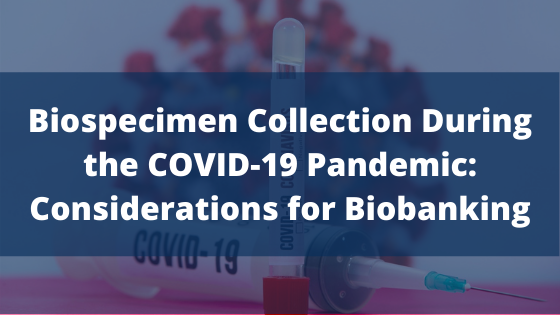SARS-CoV-2 is the highly transmittable respiratory virus that causes COVID-19, a disease hallmarked by an asymptomatic infection in some, and severe symptoms, including death, in others. At present, there is no vaccine or effective treatment. Current models suggest that until a vaccine is available recurring outbreaks are likely.
Biobanks have a critical role in the COVID-19 pandemic, as biospecimens are necessary for diagnosis and research. During the pandemic, biospecimens will be collected from known or suspected COVID-19 cases, as well as asymptomatic and presymptomatic individuals. As such, all biospecimens collected internationally from October 1, 2019, through a yet to be determined date could be considered potentially infectious and handled accordingly.

SARS-CoV biosafety guidance issued by the Centers for Disease Control and Prevention (CDC) and WHO stressed the importance of using standard precautions, eliminating unguarded aerosol production, decontaminating workspaces, and treating waste to render viral particles inactive. These guidelines continue to be updated as the pandemic evolves.
Read this paper that describes CDC and WHO guidelines for biospecimen handling, storage, distribution, etc. It also stresses the additional considerations intended to complement the interim guidance. These considerations draw on prior SARS recommendations and recent COVID-19 reports.
